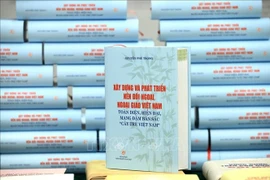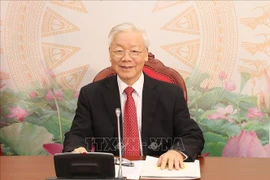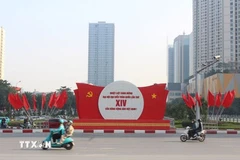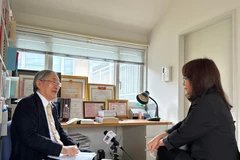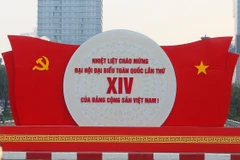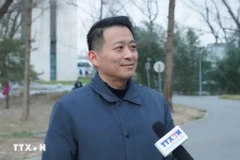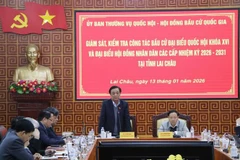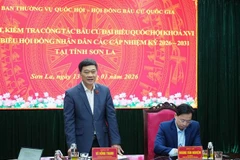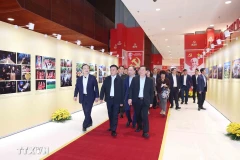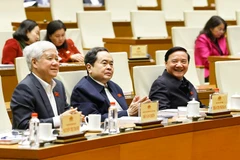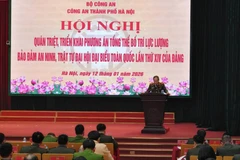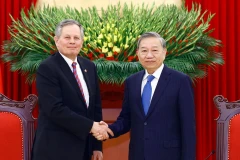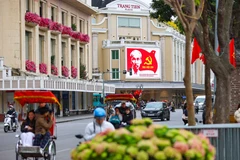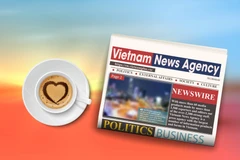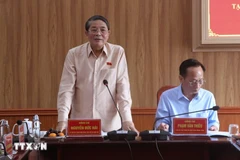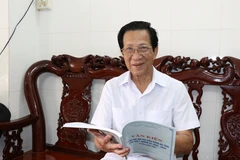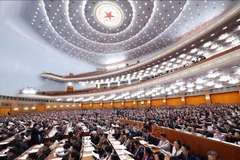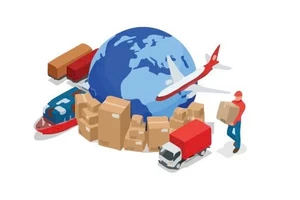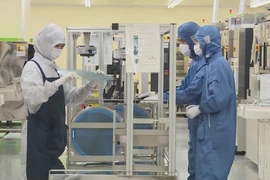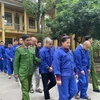Hanoi (VNA) - Senior research fellow at Meiji University Prof. Go Ito delved into Vietnam's remarkable journey over the past five decades since the liberation of the South and national reunification in an analysis published by the Japan Forum on International Relations on April 28, crediting its adaptability and a distinctive diplomatic approach dubbed “bamboo diplomacy.”
According to Ito, the story begins with a pivotal moment - the 1973 Paris Peace Accords signing. Japan, quick to seize the opportunity, normalised ties with Vietnam, opening its embassy in Hanoi in October 1975. Over the ensuing 50 years, the bilateral relationship has flourished, with Vietnam flexibly adjusting its policies to effectively navigate global shifts, particularly in the post-Cold War era.
He said he was surprised by Vietnam’s normalisation of ties with the US in 1995 and its entry into the Association of Southeast Asian Nations (ASEAN) that same year, reflecting a flexible approach to global integration. Vietnam didn’t stop there. It resumed official development assistance (ODA) from Japan, joined the Asia-Pacific Economic Cooperation (APEC) in 1998, and actively bolstered engagement in multilateral frameworks.
At the heart of Vietnam’s success, Ito noted, is the "Doi Moi" (renewal) policy launched in 1986, which propelled its gross domestic product (GDP) to grow over 100 times compared to 1975. At the 1986 National Party Congress, Party General Secretary Nguyen Van Linh pledged to transition toward a socialist-oriented market economy, integrating Vietnam’s economy into the global labour division and fostering global interdependence. Vietnam has also pursued simultaneous economic growth and political reform.
Commenting on Vietnam’s "bamboo diplomacy”, a strategy rooted in flexibility and balance, Ito observed that in the 21st century, Vietnam assumed the ASEAN Chairmanship in 2020, while forging partnerships not only within Southeast Asia but also with major global powers. Vietnam maintains a "special relationship" with neighbouring countries like Laos and Cambodia, and has secured comprehensive strategic partnerships - the highest level of bilateral ties - with 12 countries, including major economies such as China, Russia, India, the Republic of Korea, the US, Japan, and Australia. Free trade agreements with dozens of countries and a “comprehensive” diplomatic outreach have further elevated Vietnam’s global presence.

In his view, Vietnam’s "bamboo diplomacy" favours cooperation and struggle over rigid distinctions between enemies and allies. Previously, Dr. Tomotaka Shoji of the National Institute for Defence Studies in Japan, noted that the ultimate outcome of "bamboo diplomacy" is a policy of non-alignment, embodied in Vietnam’s "four no's" principle in national defence.
Domestically, he said Vietnam is pursuing bold administrative reforms to streamline its government and enhance public sector efficiency. While these changes may spark short-term conflicts of interest, Ito viewed them as essential for reducing waste and driving societal progress.
One detail particularly surprised Ito is Vietnam’s practice of selecting university rectors through elections. He saw these steady, incremental changes as key to Vietnam’s future, both domestically and on the world stage. With its “bamboo diplomacy” bending but never breaking, Vietnam, Ito predicted, will continue to reap even more successes./.

